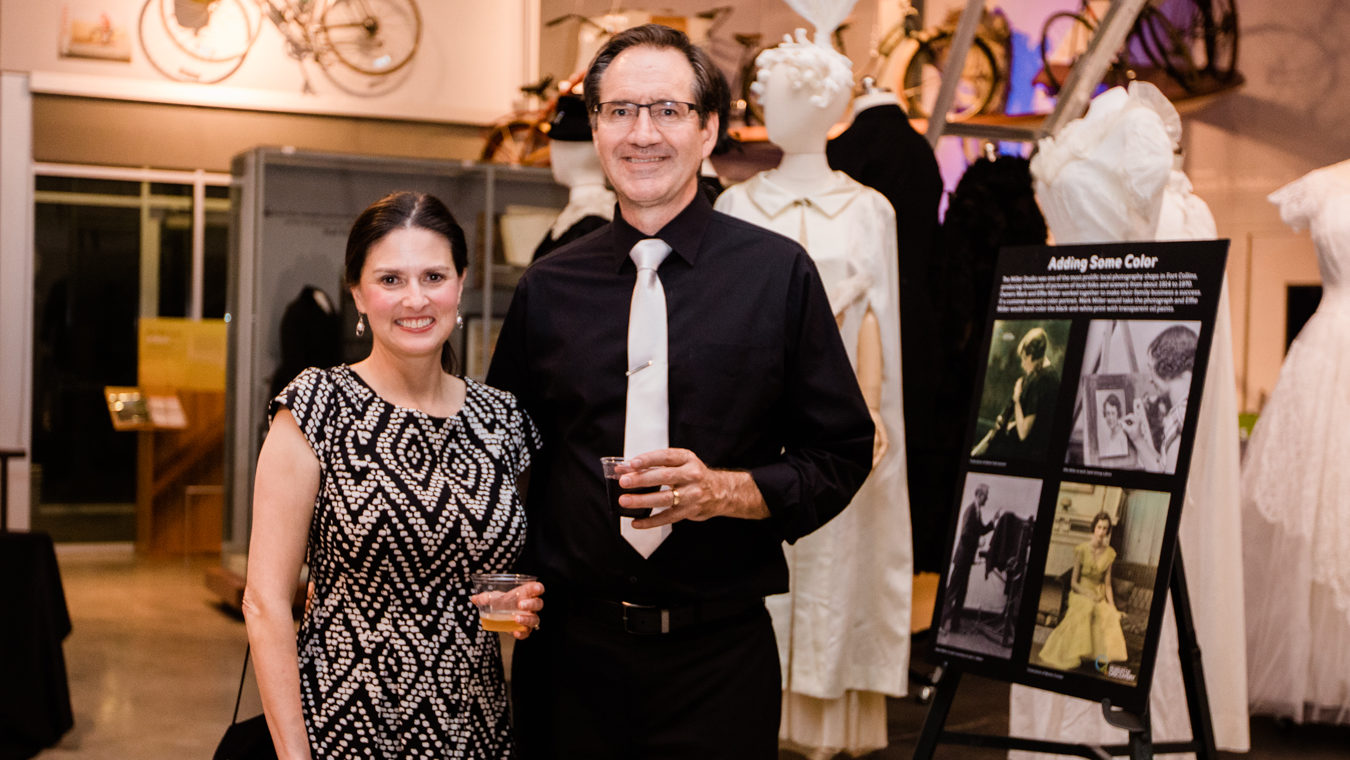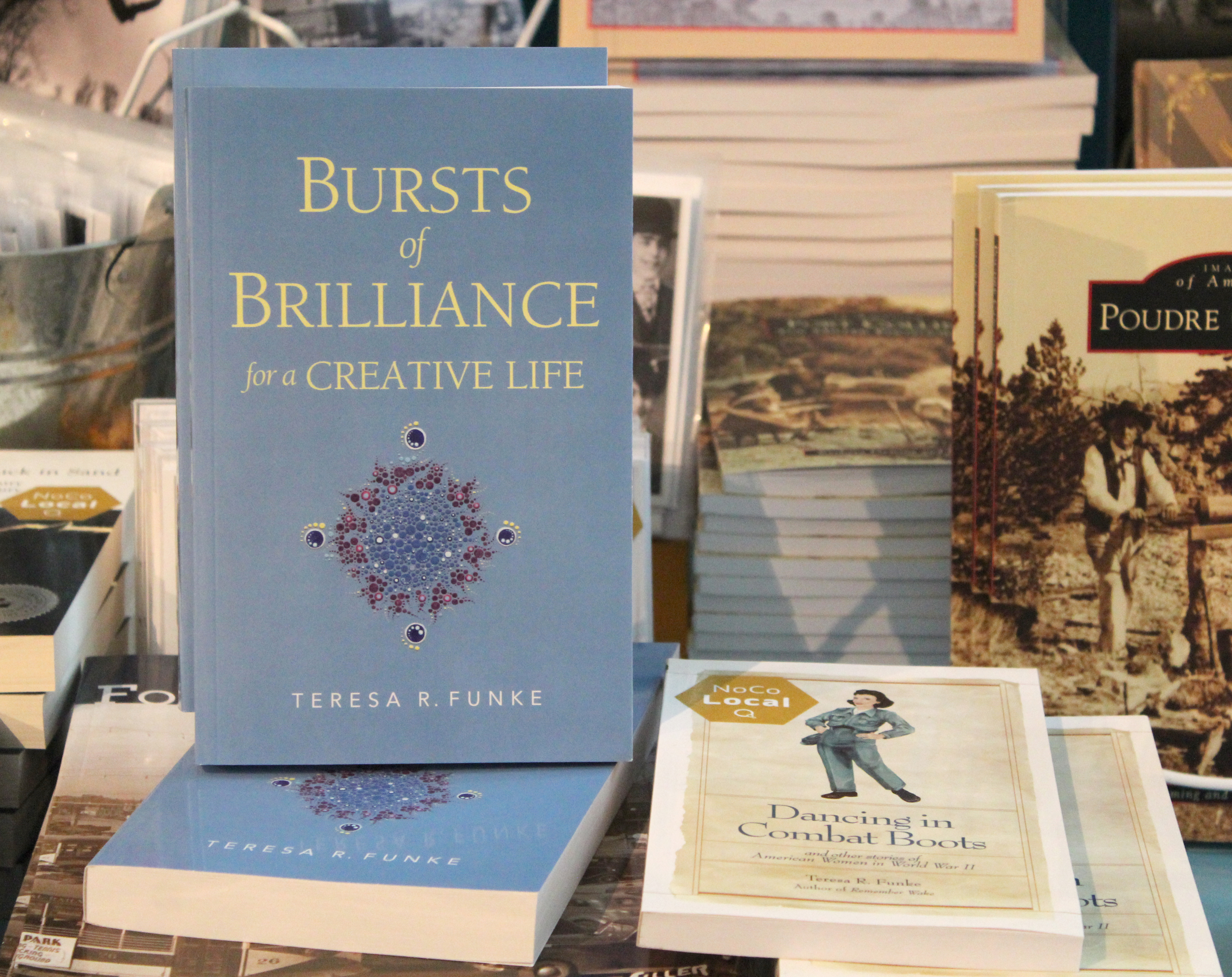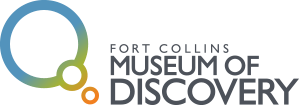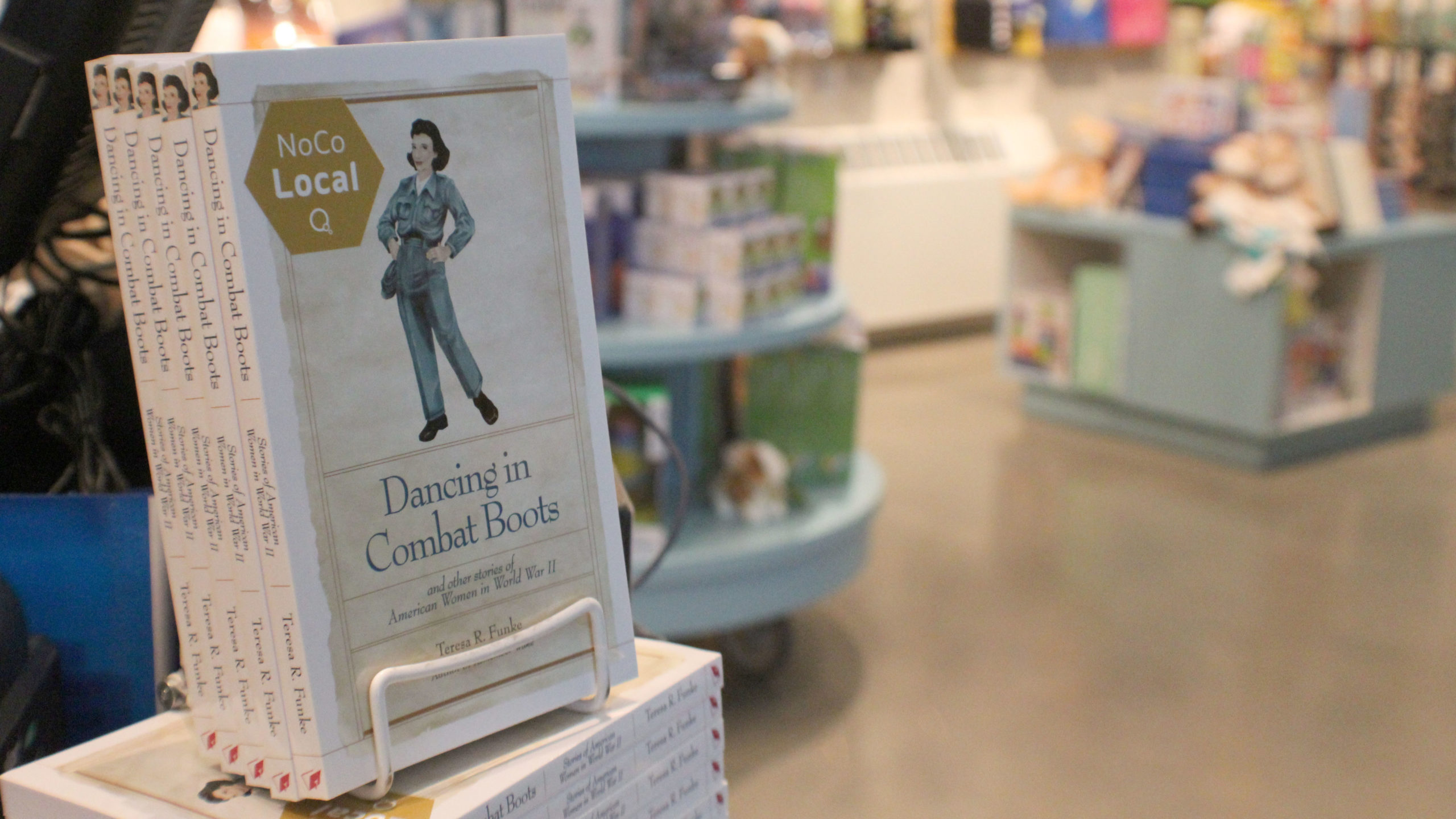Post written by Alex Ballou, Marketing Assistant.
National Authors Day
Fort Collins Museum of Discovery recently sat down with local author, blogger, and inspirational speaker, Teresa Funke. A friend of the museum, Teresa seeks to provide bursts of knowledge and inspiration through the arts. She sat down with staff for an interview in honor of National Authors Day on Friday, November 1. The following interview has been edited for length and clarity.
1. Hi Teresa! Thanks for chatting with us today in celebration of National Authors Day! Can you share a little about your background as an author?
For the first 27 years as a writer I was involved with writing about WWII. My first two books were for adults. My first novel, called Remember Wake, is based on a true story about the civilian men that were taken prisoners on the Wake Island during WWII and their time spent in the prison camps in Japan and China during the war. It is a fascinating true story. I also look at the women that were left behind, fiancées and wives that were left at the home front. This led to my second book, Dancing in Combat Boots. This short story collection is about different women of different economic, socioeconomic, and ethnic groups. This book is not about nurses, but about the variety of work that women did during the war that contributed in unique ways that we may be unaware about. Lastly, that led to the children’s books, Homefront Heroes, a series that was created because fifth grade classes were inviting me to come share about WWII. Many of the children had not heard of or Pearl Harbor, nor Adolf Hitler, and so a student suggested that I write for them. I never thought I would be a children’s author. But I learned how to write for children and I wrote five books in that series, each based on the five people I interviewed. Something unique about me is that each of my books are based on real people that I interview. That was the last 27 years of writing, and this past October my new book, Bursts of Brilliance, came out and it is based on a blog that I have been doing for over 5 ½ years. The book and blog are based on living in the creative life, tapping into our own bursts of brilliance, and so this book has taken me in a completely different direction than WWII.

2. What or who inspired you to become a writer?
That’s a good question! There was not a specific person or book, but I grew up with parents that were avid readers, they loved to talk about literature and authors. So I grew up in a home where books were highly respected and talked about. I was very lucky in that manner. I thought seriously about being a writer after something that happened in 5th grade. That year I was given an assignment to write a poem. For some reason this assignment mattered more to me than most assignments, and I was a good student, but this one was really important and I stayed up past my bed time to get this poem perfect. I could not even explain why. When I turned it in to the teacher, the teacher said: “No fifth grader could write something this good – you must have copied it out of a book. So go home and write it yourself or you are not getting a grade.” A very embarrassing moment, but also a moment of revelation. I thought to myself, I must be a really good writer. I loved writing, enjoyed doing it, and I was good at it. This sparked my interest to becoming a writer.
3. Did you have a favorite book growing up?
I have lots of favorite books. As a kid, I liked picture books that had people who were accomplishing things and cared about someone else. I enjoyed Mike Mulligan & His Steam Shovel and Dr. Seuss for his whimsical and imaginative writing. I was found of all the picture books that were bold and had different characters than me. But in high school, I read the classics, as the book worm nerd.
But I would say a book like Anne of Green Gables can be underappreciated– I didn’t read that book until I was an adult, maybe in college, but most of my friends read that book as a child. So they formed an association with Anne the way a kid relates, but when reading it as an adult you can appreciate the messaging, writing, and character development that you may not have picked up on as a kid. I think it is fun to read books that we read as kids, but now as an adult and say: “Oh there is a lot more to this book than I remember as a kid.”
4. How would you describe the process of writing your first novel, Remember Wake? What was the top thing you learn in that process that helped you in the future?
Remember Wake is based on real people that I had interviewed. Those interviews created a lot of the story such as the plot and chronological order for the story. I was just telling the story of what theses men had survived. I thought I would be capable of writing it easily, but I realized books are first always about character. People connect with the character. I then discerned that I do not know how to write a novel. So I started writing short stories and personal essays and getting those published in magazines to not only learn the craft of writing, but also to find my voice as a writer. Then I went back to the novel a few years later. The book then came together. One thing that people often do not know is that in those early stages of forming who you are as a writer; the craft is very important. Whether you do that in a practice book, where you write an entire manuscript, or if you do it like I did through short stories and essays. Most people who are career writers had to do that, and no one told me about this part of the process. You think you start by writing a book and it is not that simple.
Finding your voice is the connecting point with the reader.
5. You mentioned finding you voice, what does that mean?
Voice is that illusive thing that is impossible to describe, but what we connect to in a book. You may love a book and your friend thinks it is okay, yet you both know the writing is excellent – that is the craft. But you probably loved the book because of the voice of the writer. I think through personal essays and short stories I was able to find out what words I use, how I express myself , what matters to me, what is underlying my book, and what I am seeking to discover more about myself. There is a deep emotional connection of discovering yourself when writing a story. Authors write to discover ourselves.
As we write, we discover ourselves more.
6. Your books take an unusual approach because they are based on interviews with real people. How do you balance real stories in a fictional setting?
I am an unusual writer in the sense that I take that approach with all of my books. I like to stir curiosity. In my first book I took the best parts of the interview stories and personality traits and embodied that in the characters of the book. The most challenging part is coming up with the characters. With short story collection, each story has a different voice. Some are told in 1st person, and others in 3rd person. I also have to decide to take a tight-in or lens-out approach. Each story is unique. But, I put an epilogue in the back of each book, because I concluded that people are interested in the real stories too. For my adult novels the stories are directly from the interviews and created to be seamless as the characters develop. For kids books you must have a lot of interest to keep their attention. For my children’s books I tell 50% truth and 50% fiction, but at the end of the book I tell what is real and what was made up. The curiosity of a child is always asking: “Did that really happen?” I want to be able to be honest with the kids and inspire that curiosity at the same time.
7. Knowing what you know now, if you could tell your younger writing self anything, what would it be?
As my younger self, I learned and did all that you should do – conferences, classes, tangible things you can do to be a writer. But the best thing that you can do, and that I would tell myself, would be to write a lot. Keep writing. Allow yourself to write what may not be good. Develop the thick skin for criticism. My writing clubs made me who I am through their critiques. Don’t give up. You are going to face rejection. You have to believe that you can do it.
8. In your blog Bursts of Brilliance for a Creative Life, do you ever encounter writers block? If so, how do you overcome it?
I never really encounter writers block in my blog, because in the last 5 ½ years I have let the blog be my creative outlet. The blog is where I do not have any pressure and I can explore and write for writing’s sake. The blog started when life was busy. I gave myself no boundaries on the blog. The wide-open ability to share freely has allowed me to write pen to paper – or should I say keys to screens. However, in writing novels I have encountered writers block and my method to overcome it is to keep writing. I allow the wheels to keep turning. I admit I am stuck, but I give myself permission to keep writing even though I know it may not be my best work or what I will keep in the end. Eventually, I get to where I want to be in writing… if I keep at it.

9. How did you first get involved with the museum?
I got involved with the museum when my kids were younger. We frequented the Discover Science Center and Fort Collins Museum before they became what they are today: Fort Collins Museum of Discovery. My kids would participate in the summer camps and, as a history major, I would frequent the Fort Collins Museum often. Currently, I am a supporter of the museum. We come to the new exhibits, events, and programming that happens. It is great to still be involved as an adult. I love attending the museum for community partnership events. There are still a lot of activities – even as adults – for us to enjoy.
10. How do you feel museums like FCMoD promote 21st century skills, such as creativity, critical thinking, and literacy?
FCMoD stands for discovery, exploration, and hands-on engagement. The museum sparks a new kind of engagement. When kids get to have a tangible experience doing a science hands-on activity or churn the butter at Heritage Courtyard – it makes learning fun! The museum makes these big ideas, like scientific theories, real and accessible. People are able to come in asking: “Who am I?” They are able to explore who they are and what attracts them to history, science, music, theater, etc. People find how they are uniquely themselves, and find themselves, through the culture of the museum. The museum taps into the deeper question’s kids have. The connection the museum creates is wonderful!
The connection the museum creates is wonderful!
11. We heard you love personality tests. What have you found to be the strengths and weaknesses from the tests?
I love personality tests. You can see all of my scores on my website. However, the Enneagram and Strength’s Finder are two of my favorites. People often find personality tests to be fun and quirky, but I refer back to them frequently. I understand a lot more about myself because of these tests. I often consult the Enneagram (which I am a 7) to find insight on my everyday life. Whereas, the Strength’s Finder has been enlightening to my business and work.
12. Do you have any projects in the works that we can look out for in the future?
We currently just launched a new website – Burstsofbrilliance.com – where we will have a podcast – mainly reading the blog posts and creating an environment where you can experience the book in a new way. Also included will be membership site that has weekly communication encouraging creativity and imagination in quick, easy ways. My new book, Bursts of Brilliance, came out earlier in October. This book, as well as Dancing in Combat Boots can be purchased at The Museum Store!
Thank you to Teresa for her time and for sharing her stories! To learn more about Teresa or find some of her writing resources visit TeresaFunke.com

